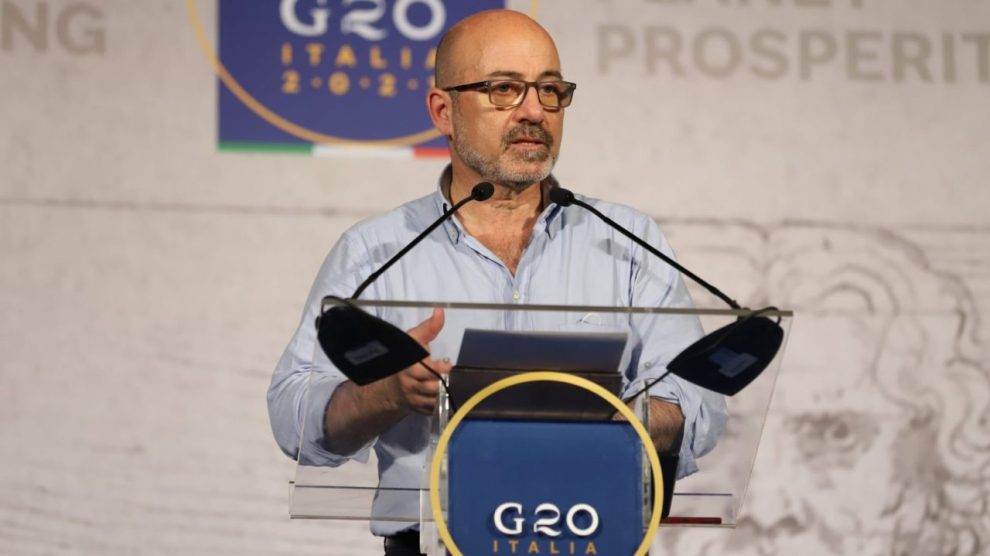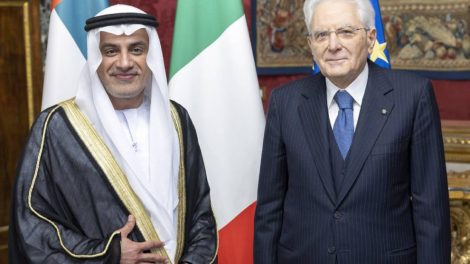The two days of work at the G20 on the Environment, Climate and Energy ended with a liberating applause that filled the Royal Palace of Naples. It happened as China approved the final document on energy and climate, in which even the toughest positions, such as India’s, were overcome. Just outside, the Plebiscito Square was guarded out of fear of no-global assaults.
On Thursday, the joint statement on the protection of the ecosystems and biodiversity went smoothly enough. Friday, however, the road was uphill. The host Roberto Cingolani, Minister for the Ecological Transition, was called to preside over the first G20 in which climate and energy – and therefore industrial policies – were addressed together; at the end of it he spoke of a “particularly complex” negotiation, but also of an “important result.” Suffice it to say that the press conference scheduled for 5 PM began well after 6 PM.
It was Mr Cingolani and John Kerry, US President Joe Biden‘s Special Envoy for Climate, who worked in sync by contacting the delegates of each individual country to win them over and have them commit to a shared document.
As expected, decarbonisation was the most challenging issue to address. On the one hand, the United States, the United Kingdom and the European Union are determined to accelerate the transition to renewable sources in order to contain global warming by 2030 within 1.5°C (compared to pre-industrial levels). On the other hand there are China, Russia, emerging economies and oil countries. Some, like China and India, who cannot give up fossil fuels to fuel their strong growth, and some, like Russia and Saudi Arabia, whose economies are based on hydrocarbons.
“As you can see from the state of my shirt, it was not particularly easy,” joked Mr Cingolani as he presented the 58-paragraph communiqué and explained that two of them were left out. “There is no disagreement” but rather “misalignment” with “four or five” countries out of 20, he said. The first issue was keeping global warming within 1.5° degrees this decade. The second concerned the timescale of the phasing out of coal.
It was understood that “you cannot go beyond a certain level,” continued the Minister, referring to those two paragraphs. While stressing that no country had questioned the targets of the Paris agreement, he explicitly cited the opposition of China, India and Russia and highlighted that some of his colleagues need a confrontation with their respective Ministries of the Economy, given the scale of the matter.
Hence, both of the points left out from yesterday’s final document will be discussed in October at the G20 meeting in Rome with heads of state and government. All while considering COP26, the United Nations conference to be held in Glasgow in November, organized by the UK in partnership with Italy.
Still, “what happened today would have been unthinkable four months ago,” claimed Mr Cingolani, who argued that until recently many countries “did not even want to talk” about certain issues. It is impossible to ignore, however, that even the richest countries are facing hardships. Towering before them is the challenge of the impacts of decarbonisation on national industries, especially with regard to automotive and steel mills – this dilemma closely concerns Italy.
Suffice it to say that at the end of the first day of work, the minister referenced the gilets jaunes phenomenon as an example of the possible “collateral damage” of decarbonisation. In that case, a fuel tax imposed to pressure people to drive less was seeperceived as an additional tax aimed at those who (like French farmers) were forced to use private vehicles and could not afford an electric car.
Mr Cingolani also cited the issue of ecological dumping. The richest countries can commit to producing steel with clean technologies, but then risk being subjected to the competition of cheaper steel produced by countries that do not respect sustainability standards. A matter that will require a follow up on the European Commission’s proposed carbon border tax, a measure which is also being mulled in the US.





